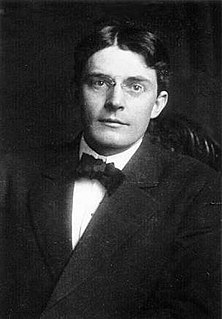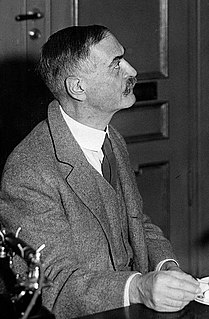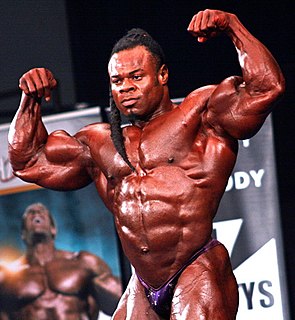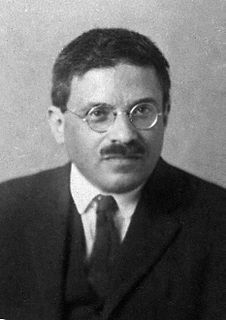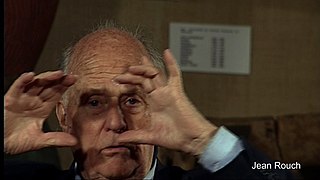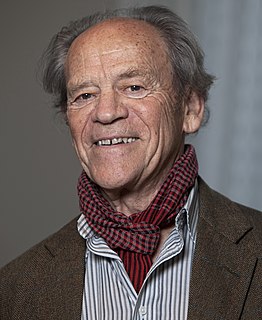Top 1200 Natural Sciences Quotes & Sayings - Page 2
Explore popular Natural Sciences quotes.
Last updated on November 8, 2024.
Psychology, as the behaviorist views it, is a purely objective, experimental branch of natural science which needs introspection as little as do the sciences of chemistry and physics.... The position is taken here that the behavior of man and the behavior of animals must be considered in the same plane.
Kant's treatments of rational theology and metaphysics were aimed primarily at theoretical questions. His attitude toward the pseudo-sciences of "special metaphysics" in Wolff and Baumgarten was always double-edged. He did see them as pseudo-sciences but also valued their doctrinal value and especially their regulative value for the empirical sciences. Like his views about religion, I don't think any of this is any longer viable in its original form.
There is knowledge of God and the spiritual nature of man, as well as other types of reality..., that are not reducible to the world dealt with by the so-called "natural" sciences. The idea that knowledge - and, of course, reality - is limited to that world is the single most destructive idea on the stage of life today.
The morphological characteristics of plant and animal species form the chief subject of the descriptive natural sciences and are the criteria for their classification. But not until recently has it been recognized that in living organisms, as in the realm of crystals, chemical differences parallel the variation in structure.
Professor Eddington has recently remarked that 'The law that entropy always increases - the second law of thermodynamics - holds, I think, the supreme position among the laws of nature'. It is not a little instructive that so similar a law [the fundamental theorem of natural selection] should hold the supreme position among the biological sciences.
Having started in sciences, I then turned around and said, 'Oh, I don't want to do sciences. I want to do philosophy.' And to their credit my parents said, 'if that's what you want to do, then go for it'. Then I got the scholarship to Stanford, which was very nice for the parents to talk to their friends about.
Astronomy concerns itself with the whole of the visible universe, of which our earth forms but a relatively insignificant part; while Geology deals with that earth regarded as an individual. Astronomy is the oldest of the sciences, while Geology is one of the newest. But the two sciences have this in common, that to both are granted a magnificence of outlook, and an immensity of grasp denied to all the rest.
One dictionary that I consulted remarks that "natural history" now commonly means the study of animals and plants "in a popular and superficial way," meaning popular and superficial to be equally damning adjectives. This is related to the current tendency in the biological sciences to label every subdivision of science with a name derived from the Greek. "Ecology" is erudite and profound; while "natural history" is popular and superficial. Though, as far as I can see, both labels apply to just about the same package of goods.
Those who assert that the mathematical sciences say nothing of the beautiful or the good are in error. For these sciences say and prove a great deal about them; if they do not expressly mention them, but prove attributes which are their results or definitions, it is not true that they tell us nothing about them. The chief forms of beauty are order and symmetry and definiteness, which the mathematical sciences demonstrate in a special degree.
I note that warmists are often banging on about the fact that sceptics like Christopher Booker and myself 'only' have arts degrees. But actually that's our strength, not our weakness. Our intellectual training qualifies us better than any scientist - social or natural sciences - for us to understand that this is, au fond, not a scientific debate but a cultural and rhetorical one.
My co-winners, Peter Diamond and Christopher Pissarides, and I wish to thank the Royal Swedish Academy of Sciences and the Nobel Foundation for this very great honor. We each feel privileged and humbled to be named the winners of the 2010 Sveriges Riksbank Prize in Economic Sciences in Memory of Alfred Nobel.
I look at the human sciences as poetic sciences in which there is no objectivity, and I see film as not being objective, and cinema verite as a cinema of lies that depends on the art of telling yourself lies. If you’re a good storyteller then the lie is more true than reality, and if you’re a bad one, the truth is worse than a half lie.
Without an acquaintance with chemistry, the statesman must remain a stranger to the true vital interests of the state, to the means of its organic development and improvement; ... The highest economic or material interests of a country, the increased and more profitable production of food for man and animals, ... are most closely linked with the advancement and diffusion of the natural sciences, especially of chemistry.
If photography is allowed to stand in for art in some of its functions it will soon supplant or corrupt it completely thanks to the natural support it will find in the stupidity of the multitude. It must return to its real task, which is to be the servant of the sciences and the arts, but the very humble servant, like printing and shorthand which have neither created nor supplanted literature.
The changes that we can make in the culture can be there for people that we will never meet, that will never know us, and that's what keeps me up at night. It's what excites me about science, that we can learn ways of being with each other. And the behavioral sciences have not been enough of a part of cultural development. The physical sciences have; the behavioral sciences have not. And I would like to see if we can bring some things into human culture that would humanize and soften and empower people.
Everything is humanities. The sciences are a form of the humanities. They involve traditions of inquiry; they involve social engagement with ideas. They do not happen with a naked brain going out and encountering a nonhuman world. And the better we understand ourselves, the better we can do science, as well. So I don't see them - the sciences and the humanities - as being at all different.
Literary or scientific, liberal or specialist, all our education is predominantly verbal and therefore fails to accomplish what it is supposed to do. Instead of transforming children into fully developed adults, it turns out students of the natural sciences who are completely unaware of Nature as the primary fact of experience, it inflicts upon the world students of the humanities who know nothing of humanity, their own or anyone else's.
Eugene Wigner wrote a famous essay on the unreasonable effectiveness of mathematics in natural sciences. He meant physics, of course. There is only one thing which is more unreasonable than the unreasonable effectiveness of mathematics in physics, and this is the unreasonable ineffectiveness of mathematics in biology.
We ought not to believe those who today, adopting a philosophical air and with a tone of superiority, prophesy the decline of culter and are content with the unknowable in a self-satisfied way. For us there is no unknowable, and in my opinion there is also non whatsoever for the natural sciences. In place of this foolish unknowable, let our watchword on the contrary be: we must know - we shall know.

